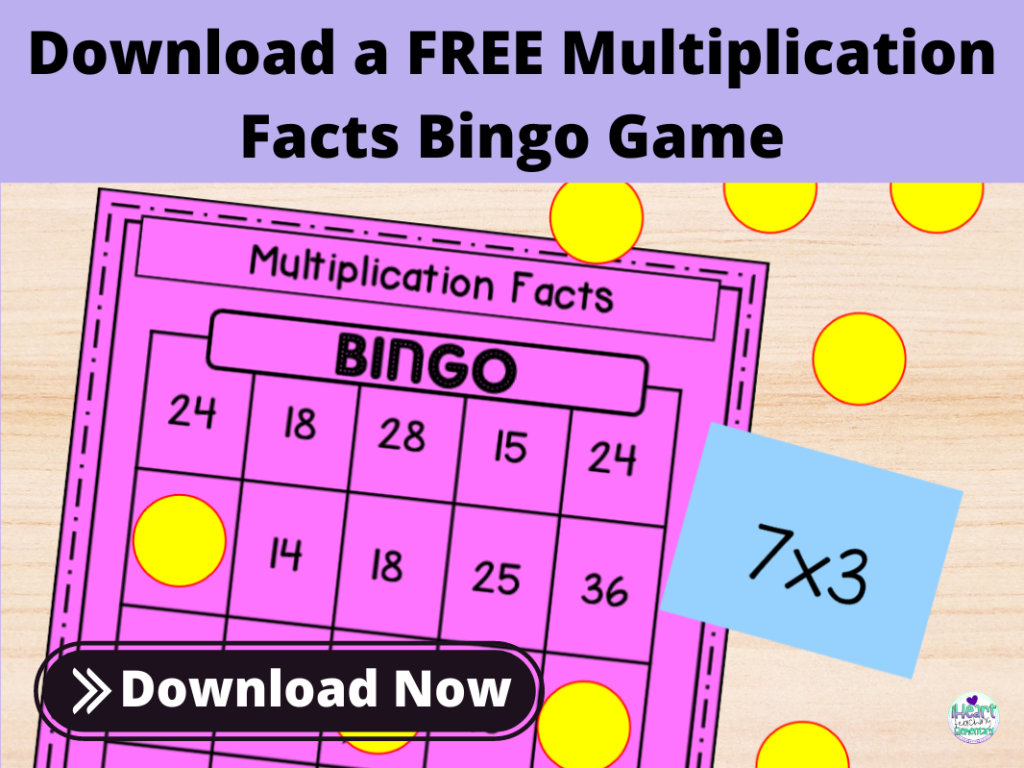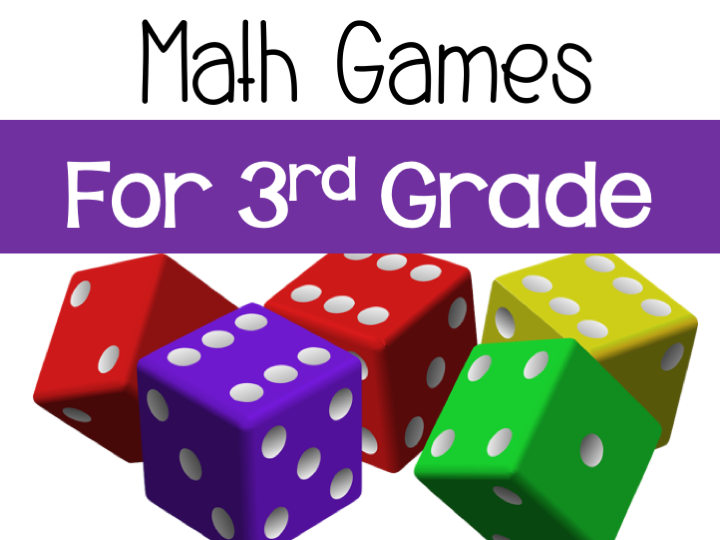Kids love to play games! So why not incorporate them into your math instruction? We often play math games for 3rd grade in my classroom because it’s such an effective way to review. In this post, I’ve answered some of the top questions about math games.
How do you manage math games for 3rd grade?
I have math games for 3rd grade that cover all of the skills. So there needs to be a way to manage them and organize them. Many of the games we play involve some of the same things so I store those all in the same area of my classroom. I have a bookcase with two shelves and containers that store all of my math game pieces-dice, playing cards, foam cubes, counters, etc.
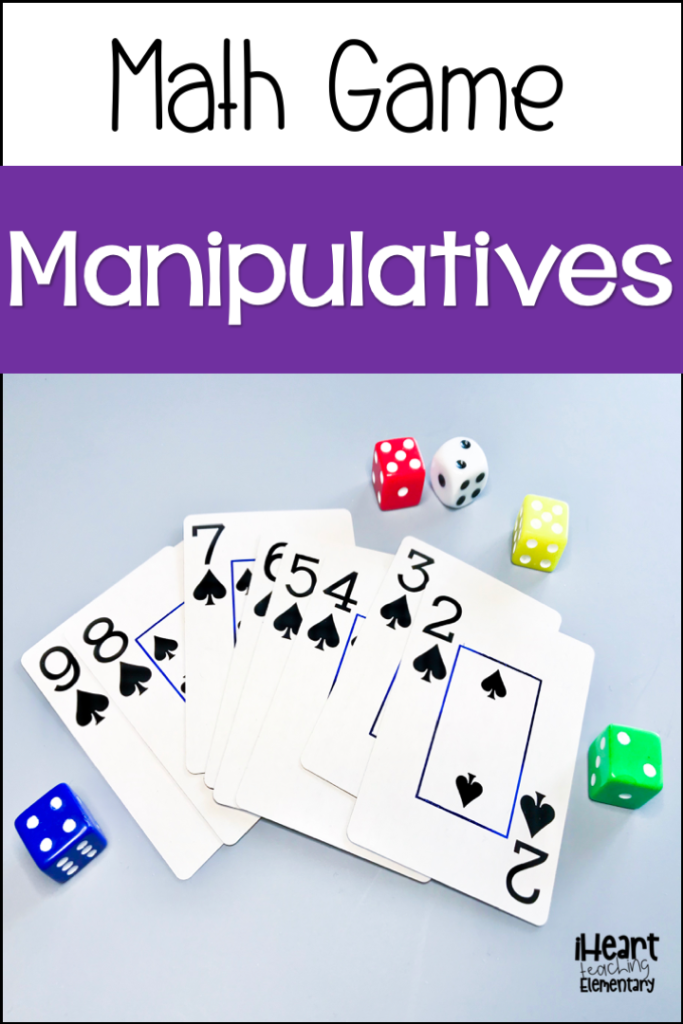
I keep all of the actual games themselves stored in Ziploc bags and divided up in an 8-drawer rolling cart. Each drawer is assigned a specific skill so I have a drawer with addition and subtraction games, one with multiplication games and so on. I go to the drawer that has the skill we need to practice and grab a game. Then I pick up any manipulatives needed for the game from my math manipulatives shelf.
How often do you play math games?
Most of the time we play a game to review or practice a skill we have learned. If I notice we need more practice with a skill we will play a game instead of using a worksheet. At the end of every unit, we play a game to review right before the test. But we also play games to review that same skill throughout the year. I want the kids to be able to remember the content all year not just for one test.
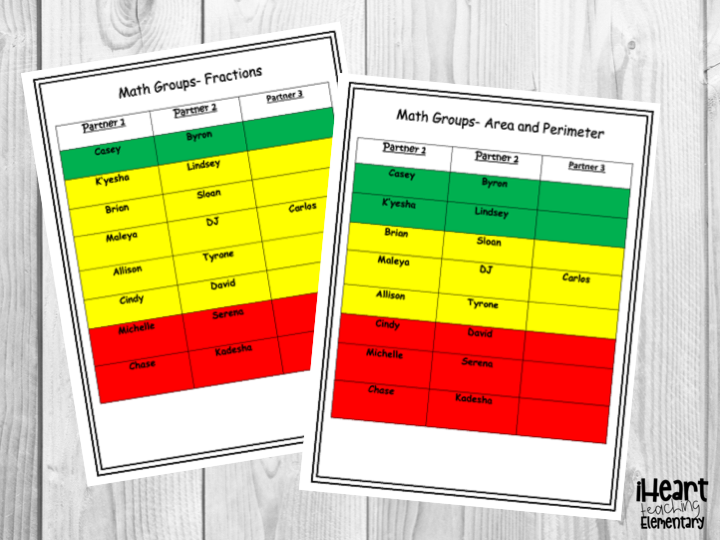
How do you differentiate math games for 3rd grade?
At the beginning of every math unit, I give a quick assessment that only has a few questions. These are not for a grade. I only use them to create math partnerships and math groups. The results of the assessment are used to partner up students that are close in ability for a certain skill assessed. I also do this to form groups and record everything in a chart to help me keep track. I color code the names to help me quickly see who’s at what level for that particular skill. (Note: The names in the charts are not my students. They are fake charts solely for the purpose of this post.)
Math partnerships and math groups change throughout the year. As you can see in the charts above, a child may have trouble with addition and subtraction but may do really well with rounding. This way I don’t have kids working with a partner that knows a skill really well while they are struggling with it.
While the kids play a math game, I meet with the strugglers at my small group table and play that same game. If it’s a partner game, I facilitate and help partners as needed. If it’s a group game I play the game with them. This time at the table is a great way to give the kids extra instruction and help them get closer to meeting the standard.
If someone’s partner is absent, I use my chart to see what other partnership is close in ability to the student that is present. So for that day, that partnership will have three kids instead of two. If it’s a struggling student that needs a partner, I usually pair up with them.
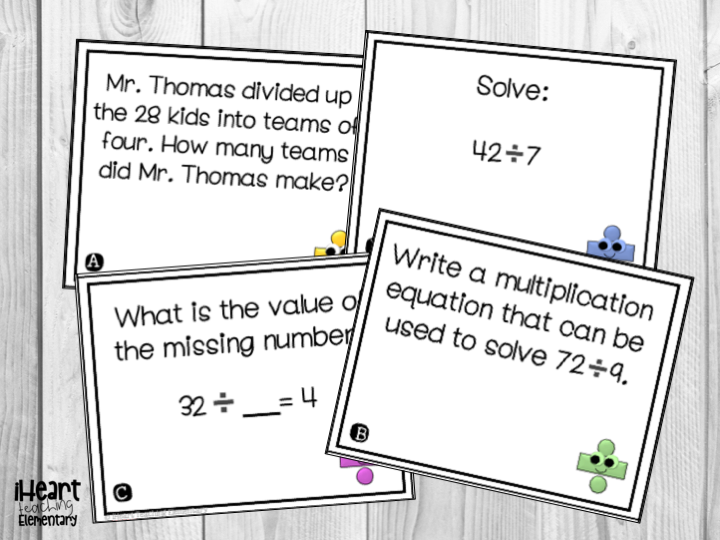
What kinds of whole-class math games do you play?
We use a lot of task cards in both reading and math. There are so many ways to use task cards and one of the ways is for math games. I wrote a post about 3 ways to use task cards here.
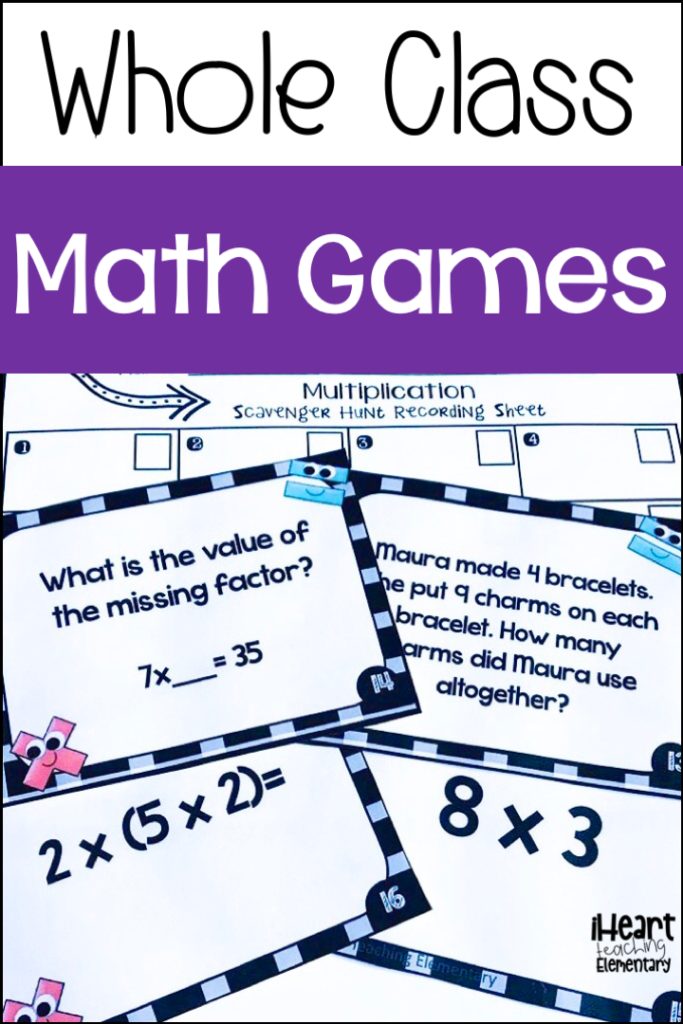
One of my all-time favorite whole-class games is a scavenger hunt! But this isn’t just any scavenger hunt. It’s a fun twist on a regular scavenger hunt where the kids have to figure out a word or phrase. The benefit of these types of games is that it gets kids up and moving around the room.
The kids can work alone or with a partner throughout the game. They go around with their recording sheet and answer questions related to the skill we are reviewing. Once they have all of their answers, they should have a word or phrase which means they won! I like to do first, second and third place. There will be times when not everyone finishes and that’s ok. The most important thing is that the kids practiced the skill and had fun doing it!
Do you need ready-made math games or task cards? You can find the scavenger hunt games HERE and the task cards HERE.
